- Arakan Army signals willingness to forge strategic partnership with Bangladesh’s new government
- Internet blackout in Arakan State hampers emergency aid delivery
- Arakan residents call for air raid warning systems amid surge in junta airstrikes
- Arakan’s Breathing Space (or) Mizoram–Arakan Trade and Business
- Death toll rises to 18 after junta airstrike on Ponnagyun village market
Cattle prices soar in Arakan State
Cattle prices have risen sharply in Arakan State after more than 10,000 cattle were killed by Cyclone Mocha across 10 townships in the state, according to local residents.
08 Jun 2023
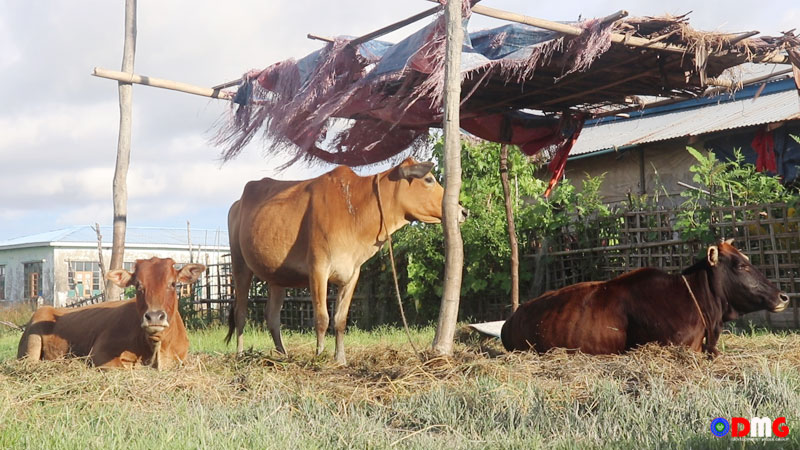
DMG Newsroom
8 June 2023, Sittwe
Cattle prices have risen sharply in Arakan State after more than 10,000 cattle were killed by Cyclone Mocha across 10 townships in the state, according to local residents.
Around 420 cattle were killed in Kyettawpyin Village in Sittwe Township, where by the the price for an ox has increased from 1.2 million kyats to between 1.4 million kyats and 1.7 million kyats now.
“The price hit between 1.4 million kyats to 1.7 million kyats in the aftermath of the storm. The price of cows has also increased from 600,000 to over 800,000 kyats. The price has increased because many cattle were killed, and stocks have significantly declined,” said Kyettawpyin resident U San Hlaing.
Farming is the major source of livelihood for Kyettawpyin villagers, who also raise cattle on a small scale. There were more than 1,500 bulls and cows for farming and dairy production in Kyettawpyin village, but 55 bulls and 368 dairy cows died in the storm.
A total of 11,799 cattle were killed by the storm in Arakan State, according to Myanmar’s military regime. Rathedaung and Sittwe townships reported the most casualties.
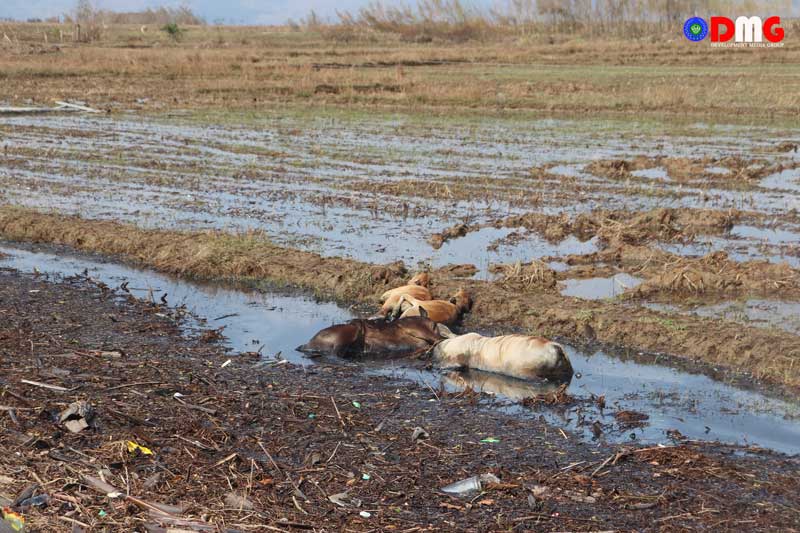
The prices of cows have nearly doubled in Rathedaung Township’s Donepike Village, where hundreds of cattle were killed by the cyclone, according to villagers.
“The price of an ox has increased from 700,000 kyats to 1.2 million kyats now,” said Ko Yan Myo Aung of Donepike Village.
Thirteen villagers were killed by the storm in Donepike Village, which had around 1,600 cattle before the storm, of which more than 700 were killed.
While prices have surged, demand for cattle has declined, according to cow breeders.
Because cattle remain a crucial part of the agricultural equation in Arakan State, local farmers are looking at challenging months ahead.
“If we still had cows, we could sell them to repair houses and buy food. However, nothing is left now as the cows have died. We are bound to face starvation,” said U Maung Thar Cho of Ywar Thit Kay Village in Rathedaung Township.
More than 100 cattle were killed and almost all the houses were destroyed or damaged by Cyclone Mocha in Ywar Thit Kay. The majority of residents make a living by farming.
Junta-controlled newspapers reported on June 5 that the regime has sent tractors and ploughs to Sittwe and Rathedaung townships.
Some 90 percent of rice seeds and rice stored for consumption were destroyed by the storm in Sittwe, Pauktaw, Rathedaung, Ponnagyun, Kyauktaw, Mrauk-U and Maungdaw townships, and some damaged stocks were also reported in Gwa, Kyaukphyu and Thandwe townships, according to the Arakan Farmers’ Union.




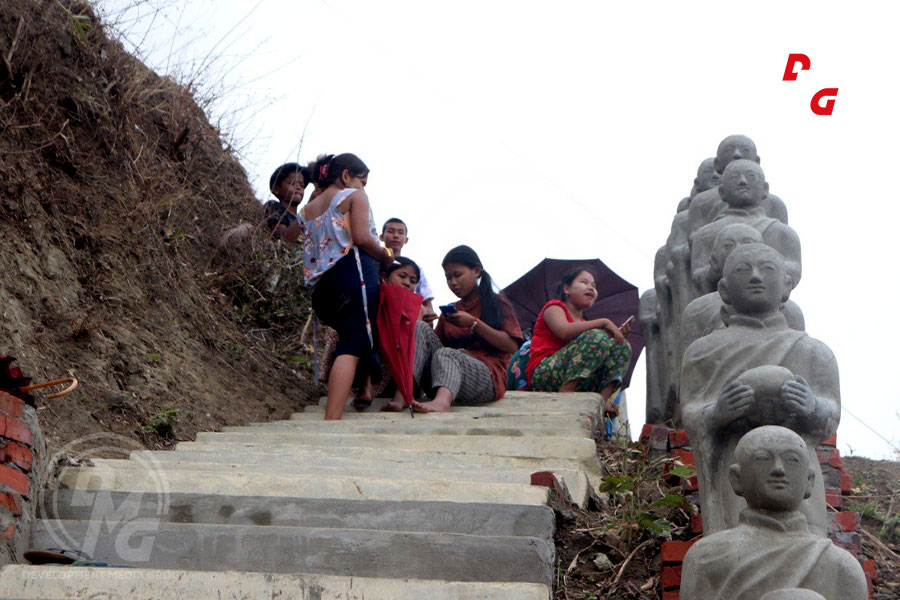

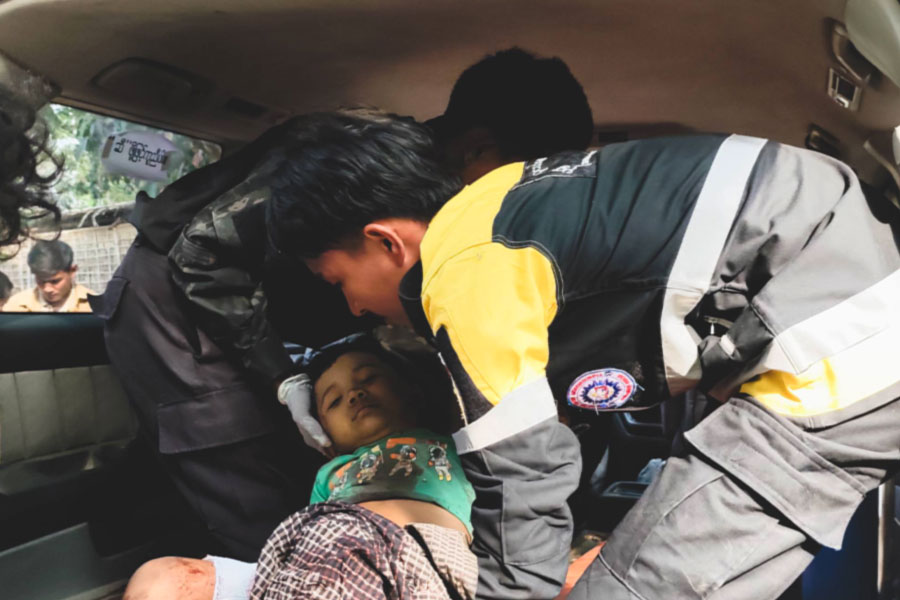

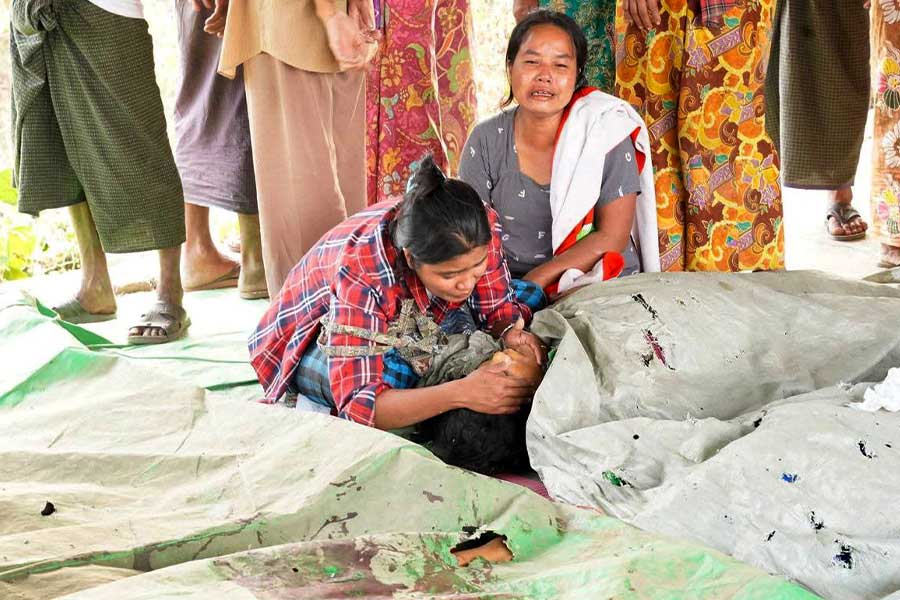








.jpg)